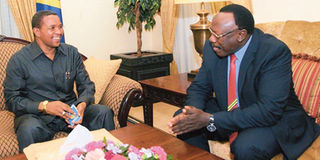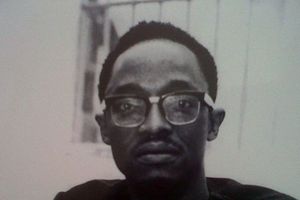Let’s read the signs of the times as there’s too much at stake

What you need to know:
Observers of African politics, astute or not, will certainly know when election time is on the horizon. They might not even know the exact date for the elections but the signs will be all over the place for them to know for sure of the certainty of the ballots. In Tanzania, it has been two weeks of many political signs that come October the ballots will be here.
The Holy Scriptures are replete with stories and warnings of the end of age. The faithful are told to ever be vigilant, to carefully read and interpret such signs, they are cautioned against false prophets, and urged not to be afraid of some of the things they shall witness. The Holy scriptures show that such things must come to pass for the new age to begin. There is no any other way around.
Observers of African politics, astute or not, will certainly know when election time is on the horizon. They might not even know the exact date for the elections but the signs will be all over the place for them to know for sure of the certainty of the ballots. In Tanzania, it has been two weeks of many political signs that come October the ballots will be here.
At the end of last week, on Saturday, President Jakaya Kikwete announced a cabinet reshuffle, bringing in two new faces, but largely leaving his cabinet intact. The reshuffle was brought about by a scandal which had raged since last year.
At the height of the Tegeta escrow account scandal late last year, many voiced their opinions of what they wanted the President to do. Nothing had galvanized public opinion and aroused such passions in President Kikwete’s second and final term in office like this scandal.
It was the single most issue around which many Tanzanians could identify with regardless of their political or social dispositions. Writing in one of the social networks one person argued that “it was the last moment to make his mark…your last tango dance.” She implored the President “not to sit this one out”.
It is a mixed baggage.
President Kikwete had begun dancing a while ago. He sacked Prof Anna Tibaijuka, and on the day he announced his cabinet reshuffle, another Prof who was minister for Energy and Minerals had resigned earlier in the day, protesting his innocence. His presidency has come to be characterized by some unwanted records, like having made seven cabinet reshuffles, of which five had been brought by different scandals and improprieties unbecoming of public servants.
By not sacking his cabinet, the President was sending a message to his political adversaries and the people at large that the government was stable, hence no need for alarm. It could be catastrophic in an election year, if the ruling party is perceived to have lost its balance. The reshuffled ministers and the new appointees were quickly sworn in.
The President chose to play the continuity card.
On the other hand, there are court proceedings against various public officials in relation to their roles in the Tegeta escrow account scandal. Corruption is a thorny issue every election year.
And the government would not want to be seen as dithering in its response to corruption and impropriety. The point here is to show people that their government is firmly in charge of the situation.
People’s minds are fickle; there are times where perceptions and appearances are more important than the devil in the details.
At the beginning of the week, members of the opposition Civic United Front including their national chairman, Prof Ibrahim Lipumba, decided to go on with their planned public meeting, which the police had told them wasn’t allowed.
The events which followed not only led to a paralysis in Parliament business but also a very heated-partisan debate in the august House. The minister in charge of Home Affairs said the opposition was after “publicity.” Another MP wondered, why Prof Lipumba shouldn’t be beaten, while there are many other leaders who met the same treatment.
In Africa, as elections loom large, more often than not, the state plays a heavy hand against its political opponents. Only a foolish political strategist or tactician in this part of the world will leave things to chance as the opposing groups try to negotiate more space.
Neither side is likely to back down. CUF have said they will continue with their planned gatherings, and those in power are unlikely to give them a different response. Whoever caves in is labeled as “weak” and in an election year, that could ruin your political chances.
As we approach the elections, if the past is anything to go by, then the levels of violence will increase and political rhetoric is unlikely to come down anytime soon.
It is the end of an age. The incumbent is looking for a new face. The opposition, sensing political blood, is trying to make a kill. There is too much at stake for both sides.
Mr Mwakibete is a socio-economic commentator and analyst based in Dar es Salaam
In this space last week, we erroneously attributed the article titled ‘Why are there so few books about our politicians’ to Richard Mshomba. The piece was written by Mr Erick Mwakibete. The error is regretted. The Editor




